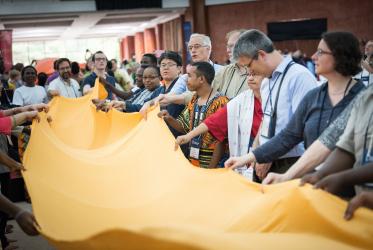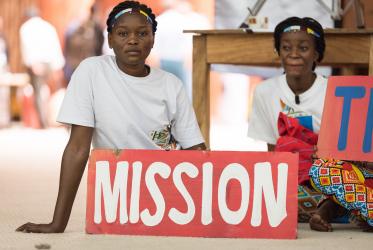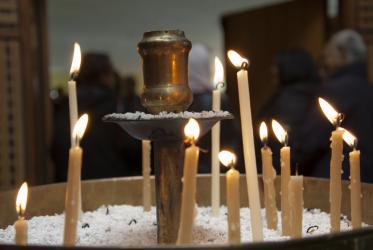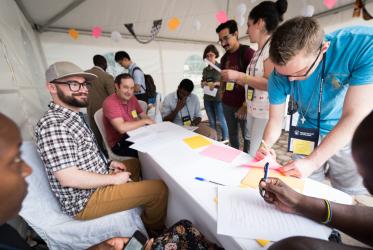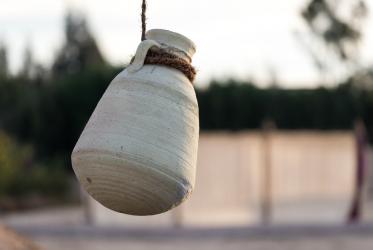Displaying 1 - 20 of 21
Webinar will highlight “People on the Move: Solidarity and Advocacy”
05 November 2020
Human fraternity is a divine calling, says WCC general secretary
03 February 2019
How can you help refugees?
11 October 2018
‘Sokoni’ transforms marketplace into mission
13 March 2018
G20 summit: call to pray for peace in Hamburg
07 July 2017





